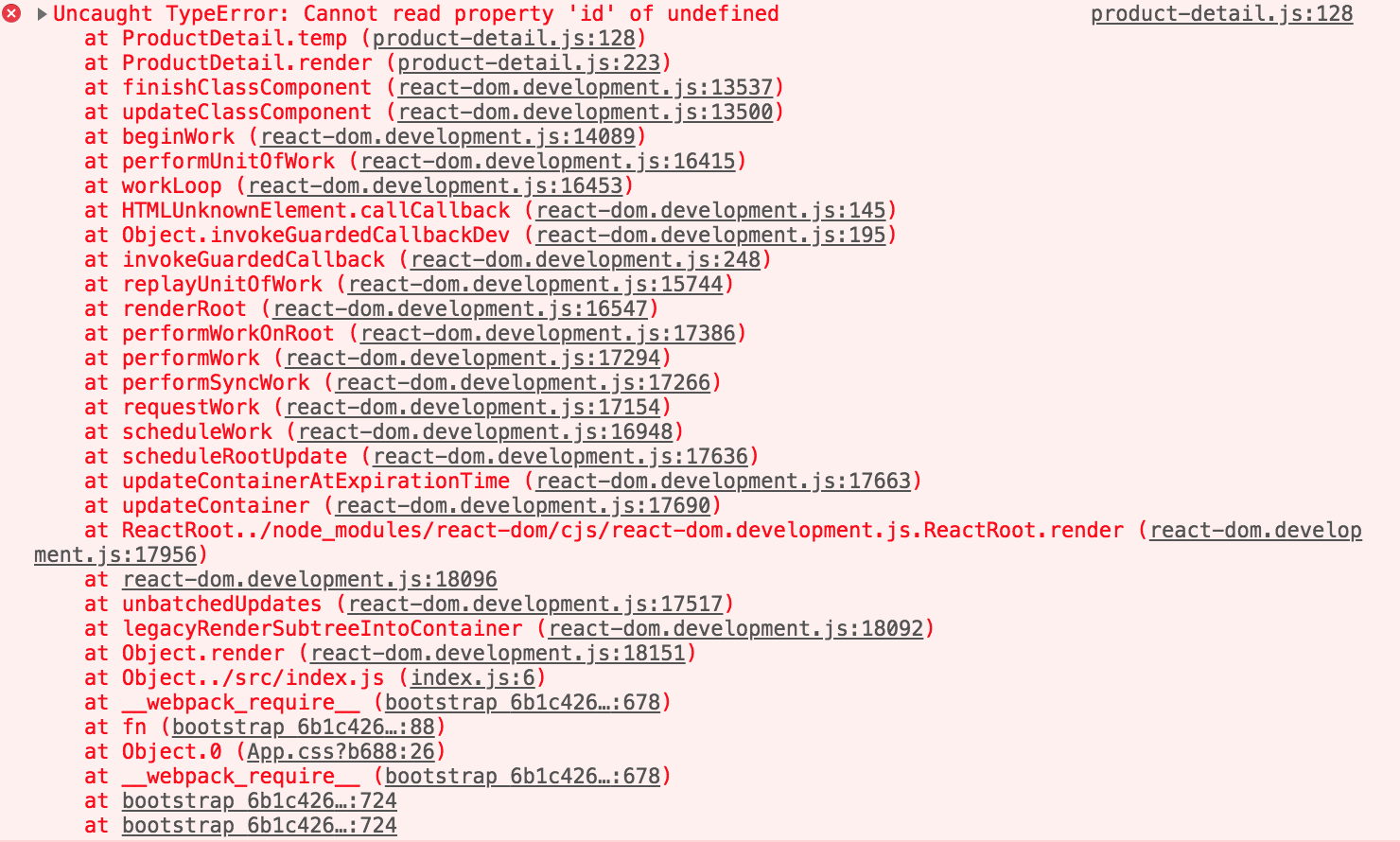
Table of Contents
Toggle
Over the past week, some of our readers have encountered an error code of an error type. Several factors can cause this problem. Now we will deal with them.
Recommended: Fortect
g.A TypeError object is a large error where an operation cannot be performed, usually (but not exclusively) when a value does not match that particular expected type. A TypeError can occur if: the operand or register passed to a function is not compatible with the type expected by this operator or by this function; Where.
g.
TypeError: Object does not support any property or procedure x (Edge)TypeError: "x" is not this function Again, if you were trying to contact us by calling a value from a function, the value is not an important function. Some code is expecting someone to provide a function, but it didn’t.
Recommended: Fortect
Are you tired of your computer running slowly? Is it riddled with viruses and malware? Fear not, my friend, for Fortect is here to save the day! This powerful tool is designed to diagnose and repair all manner of Windows issues, while also boosting performance, optimizing memory, and keeping your PC running like new. So don't wait any longer - download Fortect today!

Is there really a typo in the feature list? Maybe the object you are calling the method shouldn’t this feature be? Example for JavaScript objects do not have map suggests, but the JavaScript articles Array do.
There are many built-in options that need to be executed (callback). you should function source for these methods to work properly:
- When using
ArrayorTypedArrayfunctional objects:-
Array.prototype.every (),Array.prototype. some (),Array.prototype.forEach (),Array.prototype. map (),Array.prototype.filter (),Array.prototype.reduce (),Array.prototype.reduceRight (),Array.prototype.find ()
-
- When used with
MapandSetobjects:-
Map.prototype.forEach ()alsoSet.prototype.forEach ()
-
In any case, which happens just as often, there is a typo in the method name:
x equals document.getElementByID ('foo'); let x = document.getElementById ('foo'); For individual methods, you need to provide any function (callback) and it will perform tasks only certain objects. This example uses Array.prototype.Is map () , which only works with Array materials.
let obj = a: 13, thirty-seven, b: c: 42;obj.map (function (number) return with * num 2;); let numbers mean [1, 4, 9];Numbers.map (function (number) Royal number * 2;); Sometimes, when creating a class, you can have a functional property a and a function common to all. Surname. When it calls someone’s function, the compiler thinks the function ceases to exist.
var dog function = () this age corresponds to 11 years; this.color = "black"; this.name means "Ralph"; turn it over;Dog.prototype.name = function (name) this.name is the same as the name; This;var return myNewDog is new Dog ();myNewDog.name ("Cassidy"); var dog = sizes () thisAge = 11 years old; this.color means black; this.dogName = "Ralph"; Keep giving it back;Dog.prototype.name = function (name) this.dogName is the same as the name; turn it over;var myNewDog implies Dog ();myNewDog new.name ("Cassidy"); Can owners write 2 × (3 + 5) once 2 * (3 + 5) or easily 2 (3 + 5) in math.
const sixteen matches 2 (3 + 5);alert ('2 x (3 + 5) ha is + string (sixteen)); const sixteen matches 2 * (3 + 5);alert ('2 c (3 + 5)' will be + String (sixteen)); Import helpers from ./helpers
let helper implies function ();helpers.groupBy = execute (objectArray, property) exchange objectArray.reduce (function (acc, obj) var-key = obj [property]; if (! ac [key]) acc [key] matches []; acc [key] .push (object); Profit according to; ,);Standard export helpers; 
This can be described as a common typed trick, saying that device is in device mode, but it is not. He has some of the same Properties as the actual device, but since it is not a device at all, it does not have the expected methods.
You should make sure that you instantiate device for every entry in your page , possibly before ngOnInit of the corresponding component:
I don’t know the structure of all pages, but if it’s an array, use the following.
ngOnInit () this.deviceService.list ('', 'sensor',) .subscribe ( uh => this.devices = res.results.map (x => Object.assign (new device (), x)); ) Let’s try typed illustration as this behavior has nothing to do with Angular. We’ll edit localStorage to represent data coming from an external source, but it also works better with HTTP.
SimpleValue interface number; b: cord;LoadFromStorage () function: T // Get it from local storage. // ignore possible null value because we know this component will exist. const saveValue = localStorage.getItem ('MyKey') as string; // Note that there is no validation in this job. // I still cannot confirm whichThe loaded value is T. // for the reason that I don't know what T. Returning from JSON.parse (stored value);const valueToSave: = simplevalue a: single, b: 'b';localStorage.setItem ('MyKey', JSON.stringify (valueToSave));const loadValue LoadFromStorage ();// = works!console.log (loadedValue); Works very well, very well. The Typescript interface is currently a compilation framework and unlike your class has no JavaScript equivalent – it’s just an agency notification. However, this also means that if you log in to find an external value like you did before in SimpleValue and you are wrong, the particular compiler in question will still trust you to know. what are you talking about. it cannot be checked at compile time. About the company
How is your class loaded from an external source? How is this actually different? If we look at the above example and change the SimpleValue for the class without changing anything better, then it still works. But there is a difference. Unlike joins, transpiled classes are equivalent to JavaScript, in other words, they are suexist outside of compile time. In our example above, this does not solve the problem, so let’s try this as an example with a good problem.
SimpleClass class Constructor (public a: number, public string) b: printA () console.log (this.a); const valueToSave: SimpleClass = new SimpleClass (1, 'b');localStorage.setItem ('MyKey', JSON.stringify (valueToSave));const loadingValue = loadFromStorage ();console.log (loadedValue.a); // 1console.log (loadedValue.b); // 'B'loadValue.printA (); // TypeError: loadingValue.printA is still not a function The loaded value just had the expected properties, but no more methods, oh! The main problem is that methods are created when new SimpleClass is called. When I created valueToSave , we didn’t need to instantiate the class, but then we turned the information technology into a JSON string as it is sent elsewhere and JSON has no concept of methods that use the information that was lost. When I personally loaded the data into loadFromStorage , I personally didn’t call new SimpleClass , I just assumed that the caller would refer to the stored parameter. Make

How to deal with this? Until thenLet’s go back to Angular and look at the general case: data notation. JSON has no type, date, JavaScript. Here’s a template that I like to use.
User Interface Agreement Line; ID: Name: String; lastLogin: string; // Represent the date as an ISO string.UserModel class ID: string; // Same as above Domain name: string; // Same as above Last connection; // Another! Manufacturer (contract: UserContract) // This is currently explicitly the constructor version. this.id is equivalent to Contract.id; this.name means the name of the contract; this.lastLogin = new date (contract.lastLogin); // if you want the master key (and security) to remain a kind of explicit constructor // another option is to use Object.assign: // Object.assign (this is a new contract lastLogin: Date (contract.lastLogin)); printFriendlyLastConnection () console.log (this.lastLogin.toLocaleString ()); Import HttpClient from @ angular / common / http;Import Injectable, Component, OnInit from @ angular / core;import Observable from "rxjs";Import instructions from "rxjs / operator";@Injectable ( provided in: 'root')MyService class Constructor (private httpClient: HttpClient) getUser (): observable // Contractt represents data that was actually returned by a third-party data source. Return this.httpClient.get ('my.totally.not.real.api.com') .A tube( card (contract => Custom model (contract) expected) ); @ Creation ( // BLA bla)MyComponent class implements OnInit Manufacturer (private myService: MyService) ngOnInit () this.myService.getUser (). subscribe (x => x.printFriendlyLastLogin (); // functions this important console.log (x.lastLogin.getFullYear ()); // works too ); This may be a complex effect, but this is the grandest and most flexible model I have used to create management of extended front-end models, much like flat inner contracts.
Download this software and fix your PC in minutes.
How to resolve the type error: the ‘str’ object is not called in any way. To fix this error, your company will need to change the names of most of the variables that have different names.I’m on behalf of the built-in function str () used in the code. In the larger example, we simply changed the new variable name “str” to “str2”.
TypeError is one of the many standard Python exceptions. The TypeError should be thrown whenever an operation is performed on an invalid / unsupported object type. For example, if you use Person + (append) on a specific string and integer value, a TypeError is thrown.
Be careful, this will make the code more verbose and avoid typos.Import the correct and relevant script that your local library uses in your code.Make sure what is called a property of an object is actually a function.




